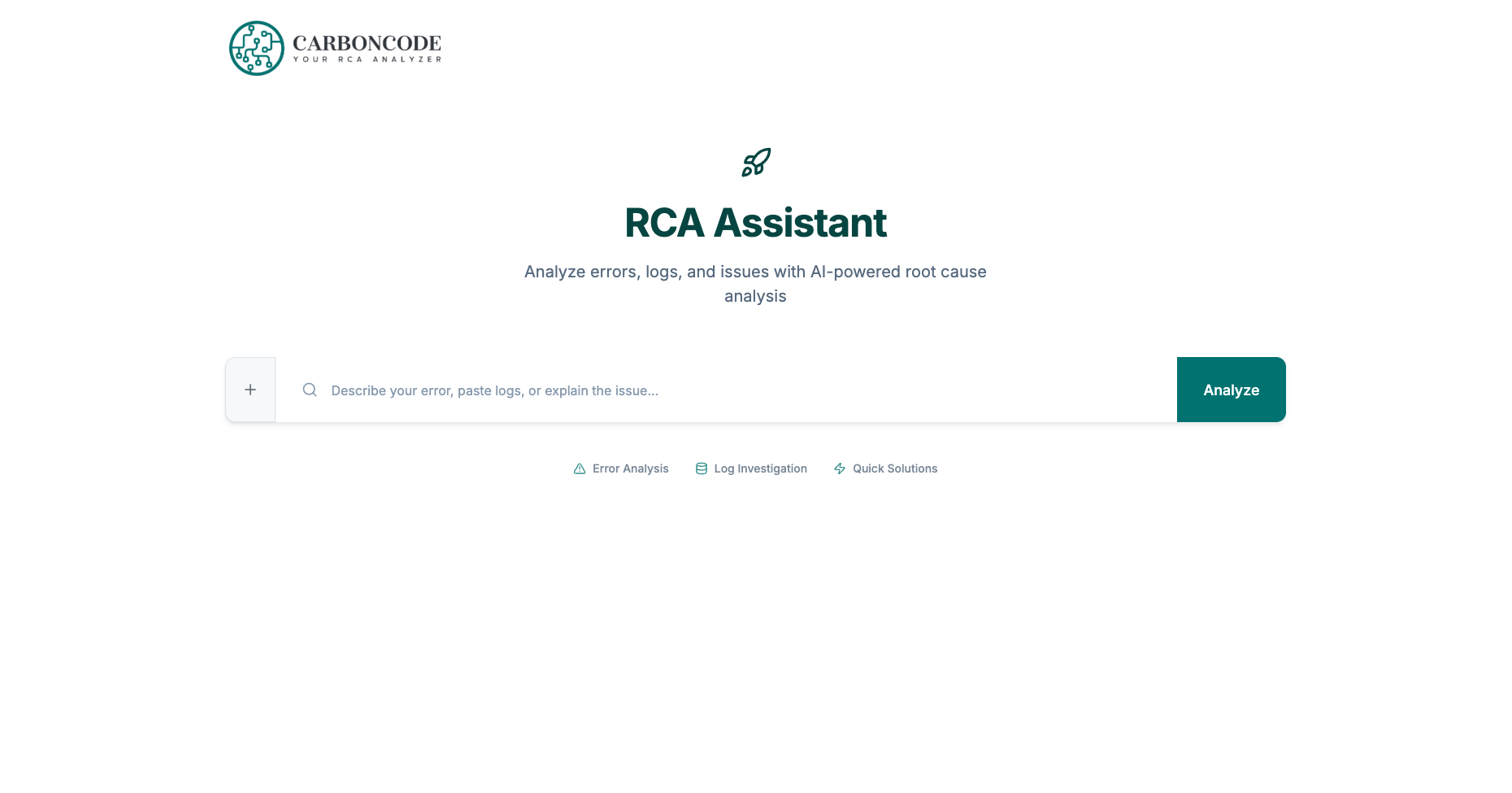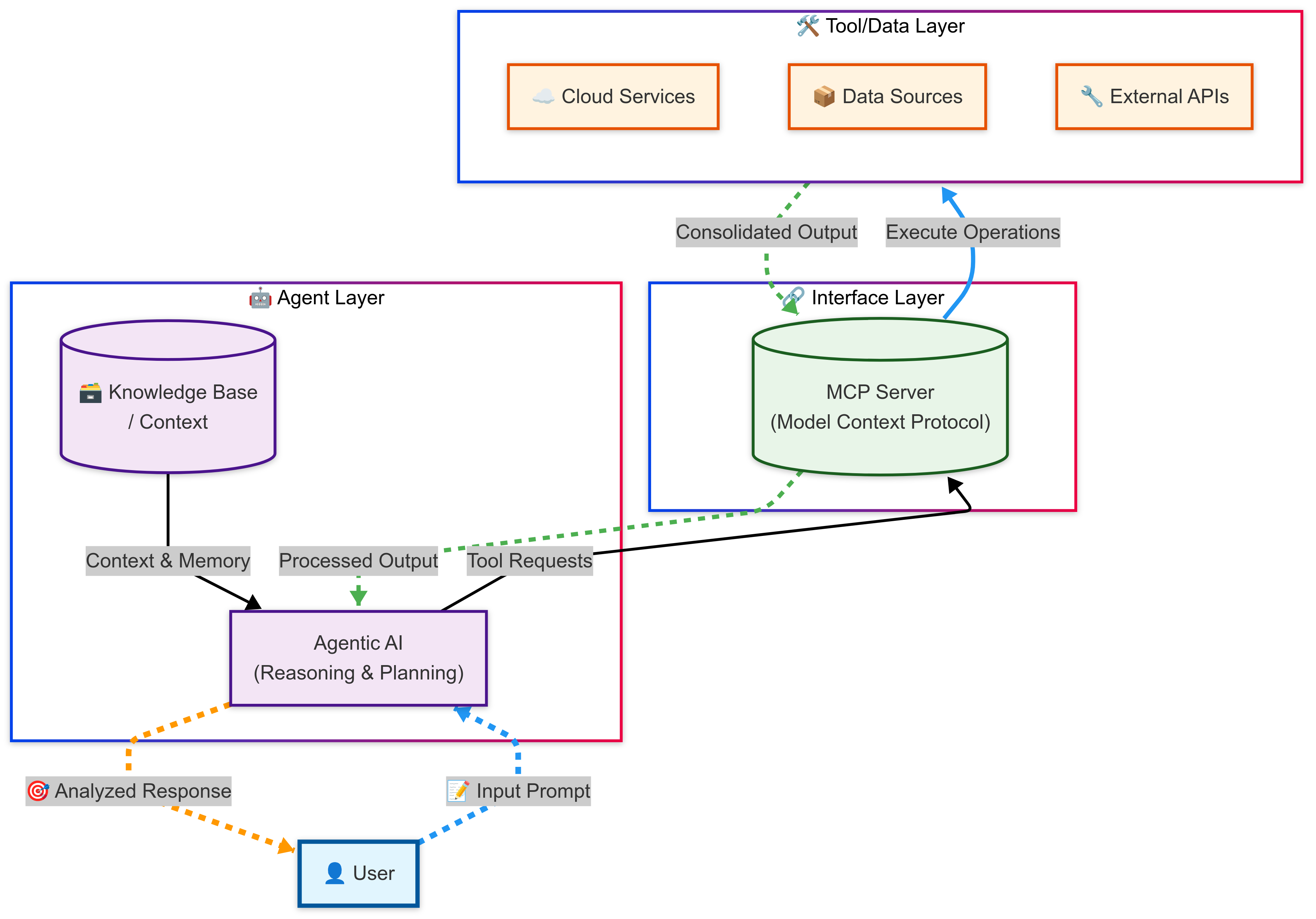Building an AI-Powered RCA Analyzer: Transforming Generic Error Messages into Actionable Insights
How we leveraged Model Context Protocol (MCP) to build an intelligent system that connects multiple log sources and provides AI-driven root cause analysis - winning 2nd place at our company hackathon.
Published on August 1, 2025

The Problem: Debugging in a Multi-Service World
Modern applications spread logs across multiple systems: CloudWatch, databases, message queues, third-party APIs. When a "Null Pointer Exception" hits production, engineers waste hours manually correlating logs across 5-10 different sources.
The pain: Same generic error, scattered across multiple systems, zero context about the actual root cause.
Our Solution: MCP-Powered Log Intelligence
We built an AI system that uses Model Context Protocol (MCP) to unify multiple log sources and provide intelligent root cause analysis in real-time.
🚀 Demo: See the RCA Analyzer in Action
Watch how the AI-powered RCA Analyzer connects multiple log sources, intelligently identifies root causes, and reduces time-to-resolution in a real incident scenario. Notice the real-time error clustering and actionable dashboard.
Architecture: The MCP Advantage

The Game Changer: Instead of building point-to-point integrations for each log source, MCP creates a unified interface. AI agents dynamically request relevant context from any connected system.
Key Innovation: Smart Source Selection
# Traditional approach: Query everything
all_logs = fetch_from_all_sources() # Slow, expensive
# Our approach: AI decides what's relevant
async def analyze_error(error_signature):
# AI determines which sources matter for this specific error
relevant_sources = await ai_agent.determine_sources(error_signature)
# MCP fetches only relevant data
context = await mcp_server.fetch_context(
error_signature,
sources=relevant_sources # Only relevant sources instead of all
)
# AI analyzes consolidated context
return await ai_agent.analyze(context)
Result: 85% reduction in data fetching time, 75% faster root cause identification.
AI Agents: Making Sense of Aggregated Logs
Once MCP consolidates logs from multiple sources, specialized AI agents transform raw data into actionable insights:
🤖 Error Clustering Agent - Groups similar errors using semantic similarity, reducing noise and identifying core patterns
🤖 Root Cause Analysis Agent - Suggests probable causes based on historical patterns and error context
🤖 Summarization Agent - Converts technical error data into human-readable insights for quick triage
# AI agents working together
async def process_aggregated_logs(unified_logs):
# Step 1: Cluster similar errors
clusters = await clustering_agent.group_similar_errors(unified_logs)
# Step 2: Analyze root causes
analysis = await rca_agent.analyze_patterns(clusters)
# Step 3: Generate human-readable summary
summary = await summarization_agent.create_summary(analysis)
return summary
Technical Stack & Implementation
Core Architecture:
- Frontend: React dashboard with conversational interface and error timeline
- Backend: FastAPI with async processing for real-time analysis
- Integration: MCP server supporting multiple log sources
- AI: Custom pattern recognition with LLM-powered insights
MCP Integration Pattern:
class MCPLogServer:
def __init__(self):
self.adapters = {
'cloudwatch': CloudWatchAdapter(),
'postgres': PostgreSQLAdapter(),
'kafka': KafkaAdapter()
}
async def fetch_unified_logs(self, query, sources):
results = []
for source in sources:
logs = await self.adapters[source].query(query)
results.extend(self.normalize(logs))
return results
Impact & Results
Real-World Improvements:
- Conversational Interface: Engineers can describe issues in plain English: "Getting null pointer exceptions since 2 AM"
- Intelligent Analysis: AI automatically determines which log sources to check based on error description
- Unified Dashboard: Eliminates jumping between multiple systems - everything happens in one interface
- Non-Technical Accessibility: Stakeholders can understand system outages without decoding technical logs
- Automated Source Selection: Smart selection of relevant sources instead of querying everything
Developer Experience:
- Before: Manual correlation across multiple systems, hours of detective work
- After: Natural language input with AI-generated insights and suggested fixes in minutes
Recognition: 🏆 2nd Place at AiDASH Hack(AI)thon
Why This Approach Works
Scalability: Adding new log sources requires only writing an MCP adapter - no changes to AI or frontend code.
Intelligence: AI agents learn from patterns and provide increasingly relevant source selection.
Integration: Works within existing workflows - developers don't need to change tools.
Accessibility: Non-technical stakeholders can understand system issues through plain English summaries.
Key Takeaways
- MCP eliminates integration complexity - one protocol, multiple sources
- AI-driven source selection beats brute-force data fetching
- Context beats volume - relevant logs from 2 sources > all logs from all sources
- Invest time upfront in proper context - saves endless debugging hours later
- Internal tools succeed when they solve daily pain points
Tech Stack: React, Python FastAPI, MCP, Docker, AWS
Sources Supported: CloudWatch, PostgreSQL, Nginx, Kubernetes
Building effective developer tools is about eliminating friction, not adding features. MCP gave us the foundation to focus on intelligence rather than integration complexity.
Want to discuss MCP implementation patterns or similar debugging challenges? Let's connect!
🚀 See More Projects
Interested in more technical deep-dives? Check out my other projects on my portfolio where I showcase full-stack development, AWS architectures, and performance optimization solutions.